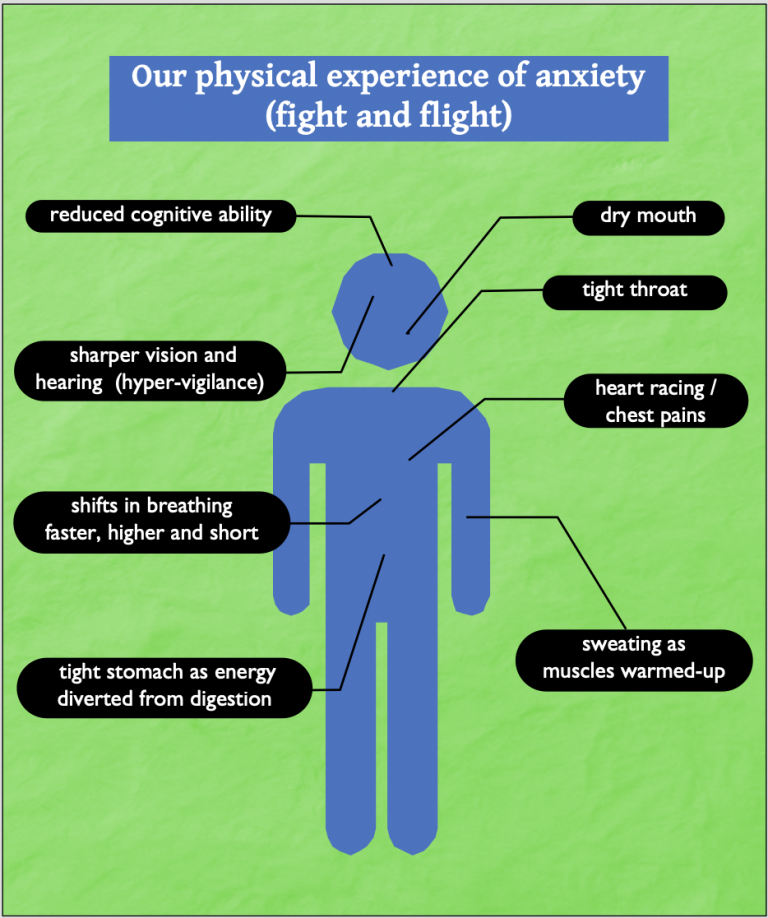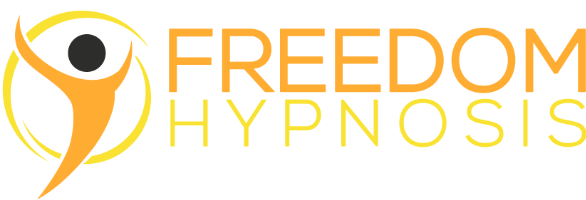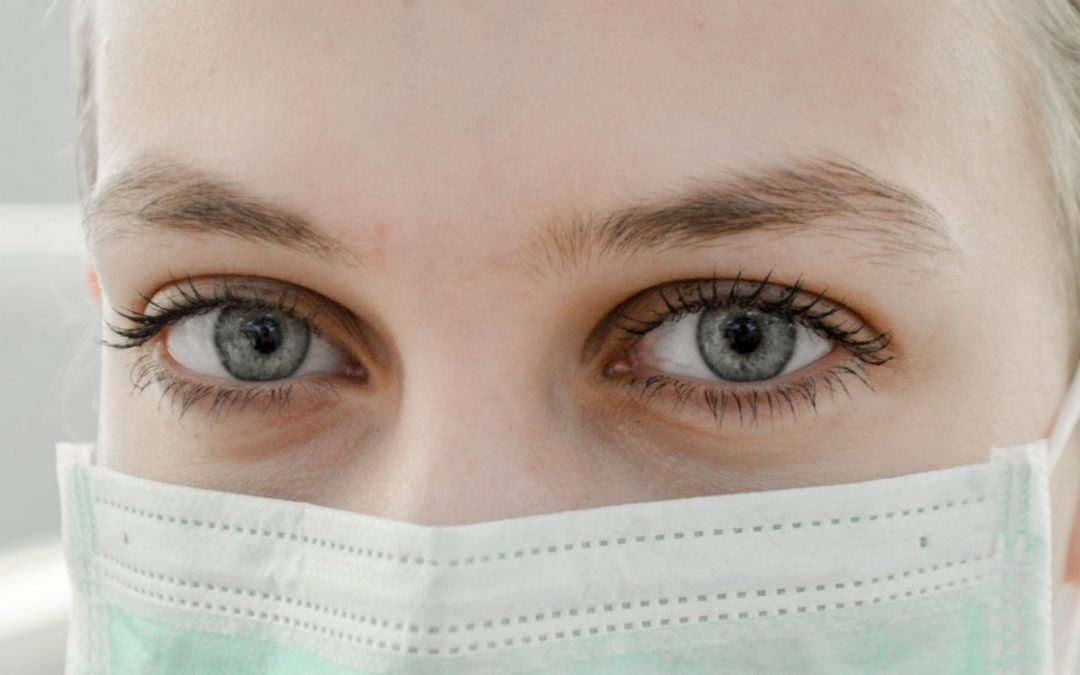2020 saw the UK on lockdown over the COVID19 respiratory disease. Not only did this put people at physical risk of a very nasty flu-like disease but also created 24 hour news coverage of people being hospitalised, struggling to breathe, and dying. Unpleasant enough for the ordinary man or women, but for the many people prone to health anxiety, this disease has created conditions for an unprecedented worsening of their mental health.
Even before 2020, health anxiety was, by far, the fastest-growing area of my practice and now it’s the main reason for clients to pick up the phone and book a session with me. If you’re suffering from this condition, I’ve presented information here that will help you make sense of your experience and encourage you to take action to resolve it. Thankfully, health anxiety can be treated, in most cases, in just a few sessions.
What is health anxiety?
Health anxiety is an excessive concern with your health (or the health of others). Clients worry they are ill or that it’s inevitable they will get ill, often in the face of low probabilities, evidence, and getting the ‘all clear’ from their doctor. There are usually ambiguous physical symptoms that leave the client unconvinced by rational reassurance. In some cases, there is a real, established disease, where the excessive worrying about the disease makes things much worse.
Instead of being present, noticing the world around them, a person with health anxiety experiences vivid imagery or dialogue around the perceived disease in their consciousness. They worry endlessly. Animals, like cats and dogs, are always going to respond to the threats in their direct environment, threats that they can see, hear and smell; they live in the ‘now’. Humans, have a conceptual consciousness; we are able to move our attention and create a remembered past or an imagined future. This ability, call it a daydream or a trance, can be their last holiday in the Mediterranean or imagining grandma slipping and falling. Whilst this is happening we emotionally respond to this content, not the real, sensory and immediate world around us. Anxiety is about anticipating a threatening future, over and over. As that imagined future heightens, it fills our consciousness and a strong undesirable physiological response begins to manifest itself.
In the same way that post-traumatic stress disorder (PTSD) clients re-run frightening clips from the past in their minds, the client with anxiety runs the distressing imaginary future over and over. Their emotional response to it, creates additional physical symptoms that creates a vicious cycle. It’s that constant psychological and physiological distress that is at the heart of health anxiety. If it escalates too much, it becomes a full-blown panic attack where the symptoms become so strong a client things they are dying.
What causes anxiety?
What causes anxiety in this present moment is the content of our thinking and how this triggers our nervous system into fight and flight mode. As the coach Michael Neill says, “We live in the feeling of our thoughts.” But in terms of why one person suffers and another doesn’t, we usually have to go back further in time. In most cases, people have events from their lives that were overwhelming and traumatic, such as parental arguing, break-ups, abuse, deaths, accidents or deliberate injury. In the case of health anxiety specifically, those events are likely to be around death or disease of self or others. The two amygdalae (parts of the brain that scan for threats) actually grow larger especially after chronic, or acute unbearable stress, and they gain a larger voice. The person becomes more sensitive. This can happen to adults; a client who wasn’t anxious, is burgled and suddenly becomes anxious from that point onwards. However, most anxiety seems to stem from childhood. An anxious adult most likely was an anxious child and so it is often helpful to quickly resolve those issues, so those issues no longer trigger a response. A child that couldn’t bear his parents arguing, should, as an adult, be able to be in the presence of people arguing without fearing his life is about to come crumbling down. A child whose mother died of cancer shouldn’t have over-whelming thoughts of getting the disease themselves or have a fear of doctors, hospitals, etc.
“It’s that constant psychological and physiological distress that is at the heart of health anxiety. If it escalates too much, it becomes a full-blown panic attack where the symptoms become so strong a client things they are dying.”
Our physiological response to anxiety
When animals perceive a threat they switch to the ‘fight or flight’ mode to handle the emergency. The autonomic nervous system, which is outside of conscious control, becomes massively aroused. Adrenaline and other chemicals pour in th
e bloodstream to make the animal stronger, faster, and sharper at dealing with the threat. This primitive response persists in our own limbic system, a part of our brains that is essentially unchanged since we were lizards. Typically we then experience:
- shifts in breathing (up in the chest, short and fast)
- heart racing
- dry mouth
- sharper vision/hearing/focus (hyper-vigilance)
- sweating/blushing as blood is moved around to aid rapid action
- energy diverted from healing and digestion to aid rapid action
- reduced cognitive ability

This helps us outrun an attacker or lift the car off the baby but it has a downside. This physiological response is for real physical emergencies only, it’s draining and stressful on the body. This response prevents healing and digestion, and a person in a state of hyper-vigilance is clearly never going to sleep well. The fight or flight mode is great for real emergencies but terrible for persistently remembered, anticipated or imaginary ones.
Clients that live in this anxious state of over-arousal will often suffer from all or any of these symptoms:
- insomnia (and related diminished daytime performance and energy)
- chest pains
- stomach problems and weight issues
- vision problems or tinnitus
- headaches
- unexplained aches and pains
- Globus (a perceived constriction of the throat and struggling to breath)
- even hysterical blindness!

These mostly psycho-somatic conditions are the tell-tail signs of health anxiety. Clients often refuse to believe the underlying problem is one of anxiety rather than an actual disease of the stomach, heart, throat, etc. etc. They distrust the doctor or test results despite multiple reassurances. Or they refused to go to the doctor because they are so worried about being diagnosed. Naturally, this creates a vicious cycle since, as the anxiety increases, the symptoms increase, so the anxiety increases….
Coping strategies
Many people end-up using coping strategies to deal with the physical manifestations of their disease. This might include:
- drinking
- drugs
- shopping
- compulsive exercise
- compulsive sex
- binge-watching TV/video games
- general avoidance
- repression (refusal to allow thoughts to materialise)
These coping strategies create problems of their own, of course, which nudge people into seeking help. If they’re unlucky they will find therapists, self-help books or internet forums that only encourage a better class of coping strategies. Typically this list includes:
- breathing techniques
- distraction
- positive thinking
- eating healthily!
- using your hands (knitting)
- relaxation techniques
Some of the above behaviours may help to reduce the symptoms of anxiety. However, whilst this list appears healthier, they are still sub-optimal choices. The solution is to work with the client to stop them from getting anxious in the first place. The above coping strategies should be the absolute last option for a client, when everything else has failed, and certainly not the first!
Take control over your own recovery. Ask friends for recommendations for therapists that got the job done quickly and thoroughly.”
Well meaning doctors can make things worse
The medical profession continues to make our lives healthier in so many ways when they focus on issues of physical health based on the biological/medical model. Unfortunately, when they try to treat a psychological disorder, a disorder of consciousness, as if it was a physical disorder, they can create negative and even life-threatening outcomes for their patients. Drug treatments often increase hopelessness. It’s true that tranquillisers, for instance, will reduce the physical manifestation of fear and panic in the body, but it does nothing to address the cause. If a person is being chased by a tiger, it’s important their limbic system generates an emergency response to get them out of danger. But for anxious clients, there is no tiger, just an imagined one. Dampening down their physiological response prevents them from taking action when real-life emergencies arise. The pharmacological solutions can also have many serious side-effects, including insomnia, weight gain, suicidal ideation and even create chemical and psychological dependency. All this and they do nothing to help the client address the real problem which returns when they come off the medication.
In the UK, NHS doctors may also use Cognitive Behavioural Therapy (CBT) to help patients. Whilst this is an improvement over drug therapy, the NHS delivery of mental health care, is rarely what it could be and until we are prepared to have an honest conversation about that, it won’t change. In the NHS, patients might wait for many months to be assessed, be put on a waiting list for many more months, and then be given 8-12 weekly half-hour sessions of CBT. Due to the postcode lottery of care, sometimes they just get time on a ‘therapy computer’. Staff are often poorly trained, under-resourced, or well trained and forced to provide care only within restrictive guidelines when other approaches would clearly be better. Also, you can’t choose your therapist, which reduces clinical effectiveness.
Key benefits of cognitive hypnotherapy over NHS provisioned CBT
Cognitive hypnotherapy is a modern, evidence-based, approach to resolving issues such as anxiety. It is the only other evidence-based therapy I’m aware of. In addition to many of the benefits of cognitive styles of treatment, the hypnotherapist also understands how the client creates their subjective states of distress and has an additional toolbox to help them address earlier traumatic experiences as well as change their unconscious responses to stressors. The sessions may or may not involve actual hypnotherapy, depending on what the client needs. The best therapy for anxiety is to help the client to see, that there is no tiger, no disease and no imminent threat to their health, so they can relax and be more present. This change is best done at an unconscious level, since relying on clients to persistently initiate coping strategies when their brains are lit-up is likely to fail.
Take control over your own recovery. Ask friends for recommendations for therapists that got the job done quickly and thoroughly. Go online and pick your own therapist, look at their testimonials, so you can find somebody qualified to help you specifically. There’s no motivation for NHS therapists to helps their clients quickly, they get paid for their 8 sessions either way whether you show up or not. ‘Slow’ and ‘unresponsive’ is built into the system. Private therapists rely on getting lasting results with their clients quickly because they’re being paid directly and they need referrals from that client to ensure their business flourishes.
Quest trained cognitive hypnotherapists are highly regarded and accredited by the NCH. Cognitive hypnotherapy sessions are heavily tailored to your specific needs so we typically only need a few sessions to create an effective and lasting change. What have you got to lose?
Book your session today by contacting me.


Recent Comments